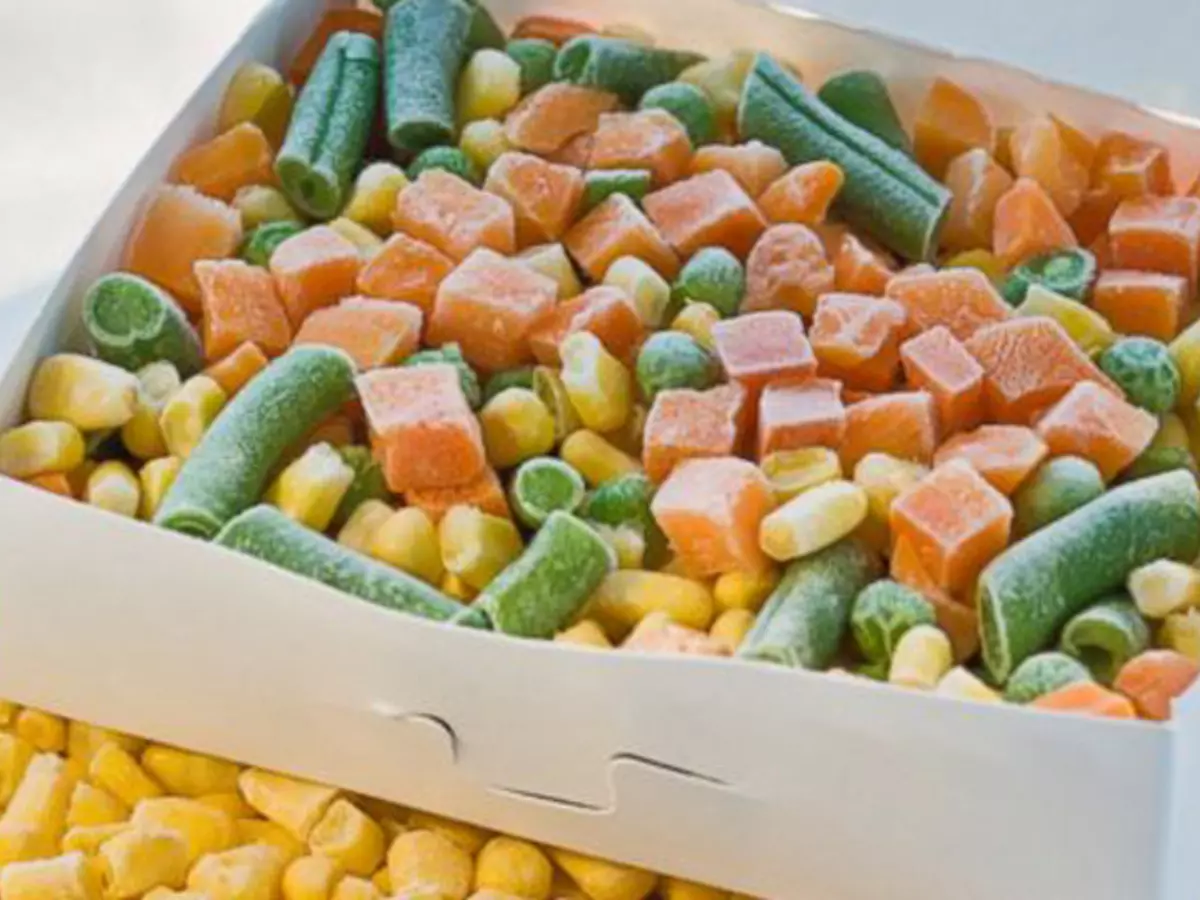11 Tips To Help Make Store-Bought Food A Little Healthier
As much as we all love the idea of fresh and natural food in reality it&rsquos not something that is always possible given how busy most of us are nowadays. Since we are often forced to rely on store-bought ingredients these tips may come in handy to make them a little healthier.

As much as we all love the idea of fresh and natural food, in reality it¡¯s not something that is always possible, given how busy most of us are nowadays. Since we are often forced to rely on store-bought ingredients rather than fresh ones, these tips may come in handy to make them a little healthier.
1. Discard the liquid in cans of beans or preserved fruits.

cincovidas.com
The liquid in canned beans is loaded with sodium (salt), because it is a preservative, so it is better thrown away. Excess sodium takes a toll on the heart and circulatory system, and over time can lead to high blood pressure, heart attacks and strokes.
The liquid in canned products is also believed to contain Bisphenol A (BPA). BPA is a chemical that has been linked to several health problems that range from brain damage to cancer.
The liquid used to preserve fruits contains vitamins and minerals that are healthy, however you're better off throwing this liquid away because you don't want to take a chance with the BPA.
2. Add fibre and omega-3 to your diet to combat the harmful effects of fructose.

cityathletic.co.uk
Most processed foods contain fructose, a type of sugar that has been linked to diabetes, obesity, metabolic syndrome and brain-related disorders like dementia and Alzheimer¡¯s disease. If you eat a lot of processed food, add fibre and omega-3 to your diet to mitigate the effects of the fructose.
A new study has found that eating foods rich in omega-3 acids can help reverse the damage that fructose does to the brain. Fish, flaxseeds, avocados, walnuts, olive oil and kidney beans are some of the richest sources of omega-3.
Fibre slows down the absorption of the sugar and prevents spikes in your blood sugar levels, which can help keep diabetes at bay. Fruits, veggies, dried fruits, whole grains, nuts, pulses and beans are some of the best sources of fibre.
3. Don¡¯t shy away from frozen vegetables.

abcnews.go.com
Studies have shown that frozen vegetables are as healthy or healthier than fresh vegetables. This is because once the vegetables are picked, they are frozen almost immediately to lock in the freshness and nutrition. On the other hand, fresh vegetables that are transported to the cities are treated with chemical sprays and powders to keep them fresh over the few days that it takes for them to reach the consumers.
Check the date of manufacture when you buy frozen vegetables however ¨C avoid the ones that have been frozen for months and look for more recent packages.
4. Add vegetables and either cottage cheese or tofu to store-bought meals.

crimsonspice.blogspot.com
If you¡¯re planning to make packaged noodles, soup, upma or idli for dinner, throw in some diced carrots, corn, beans, peas and either cottage cheese (paneer) or tofu to ramp up your meal's nutrition quotient. They will add some vitamins, minerals, protein and fibre to your meal, making it more balanced.
5. Add fruits, nuts, cinnamon and honey to your breakfast cereal.

craftsy.com
If you tend to rely on cereal or oats for breakfast, add fruits, cinnamon and honey to it to make it healthier. Fruits are loaded with vitamins and minerals, while cinnamon and honey make a powerful antioxidant combination that boosts your immunity considerably.
6. Buy full-fat dairy products rather than low-fat ones.

nextavenue.org
Several studies have shown that full-fat milk and other dairy products are healthier than their low-fat counterparts. Surprisingly, full-fat dairy has been linked to lower rates of obesity and a lower risk of diabetes.
7. Avoid sugar-free products unless you¡¯re diabetic.

stalwarttacticalfitness.com
Sugar-free yoghurt, snacks, candy, chocolate and ice cream are best avoided unless you¡¯re diabetic and have no other option. These products contain artificial sweeteners that are even worse for your health than refined sugar.
8. Buy fresh cheeses rather than packaged ones.

lafromagerieonly.files.wordpress.com
Most supermarkets now have sections where they serve fresh cheeses. Opt for these over the packaged ones you normally buy, since those have been processed quite a bit. Cheese can actually be a healthy addition to your diet, provided you eat it in small quantities of course, since it¡¯s quite high in calories.
9. Buy organic fruits and vegetables as often as possible.

juixing.com
Produce nowadays is sprayed with a ton of pesticides, which are bad for our health and the environment. Organic fruits and vegetables may be a little more expensive, but they're worth the price to avoid the cocktail of chemicals that you would be eating otherwise.
10. Soak fruits and veggies in salt water.

pvmishra.com
Instead of just washing your fruits and veggies with plain water, let them soak in salt water for some time. This will help get rid of the germs and dirt, and may get rid of the pesticide residue to some extent.
11. Buy more fruits and veggies that come with peels and skins.

prevention.com
If you¡¯re not buying organic produce, try to buy more fruits and veggies that have outer peels or skins. This outer layer protects the inside from the pesticides, and you can discard it easily. Mangoes, oranges, sweet limes, bananas, cucumbers, potatoes, grapefruits, melons, avocados, lychees, kiwis and pineapples are all foods that have outer layers that can be discarded.
